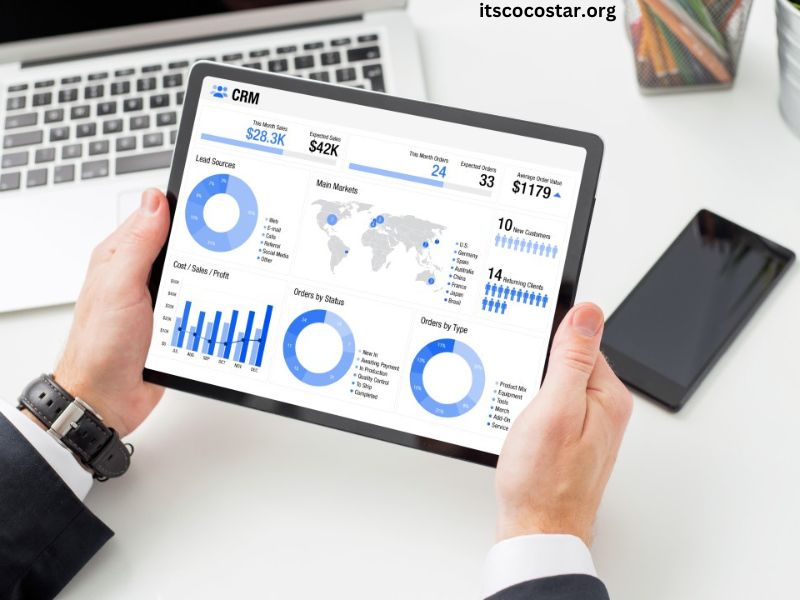Customer Relationship Management (CRM) systems have evolved into sophisticated tools that play a vital role in how businesses manage interactions with current and potential customers. These systems are designed to compile customer data across various channels, streamline processes, and enhance customer relationships. However, to fully leverage the capabilities of CRM technology, it is crucial to ask the right questions.
Among various inquiries regarding CRM systems, one of the most pertinent is: “Which question below represents a CRM analyzing technology question?” This question invites us to delve into the broader context of CRM systems and their analytical capabilities. In this article, we will explore what makes a question relevant to CRM analysis, the importance of CRM analytics, and how businesses can utilize these insights to drive strategic decision-making.
What is CRM Analyzing Technology?
CRM analyzing technology refers to the tools and methodologies employed to interpret data collected through CRM systems. This analysis helps organizations identify trends, behaviors, and patterns within customer interactions. The key components of CRM analysis include:
- Data Collection: Gathering data from various touchpoints, including sales, customer service interactions, social media, and marketing campaigns.
- Data Processing: Structuring and organizing the data for analysis, ensuring it is clean, relevant, and actionable.
- Data Analysis: Using statistical and analytical tools to interpret the data, often employing techniques such as predictive analytics, data mining, and business intelligence.
- Reporting: Generating reports and dashboards that visualize insights, making it easier for stakeholders to understand and act upon the findings.
- Decision Support: Providing actionable insights that help businesses make informed decisions, improve customer experiences, and optimize processes.
Importance of CRM Analytics
CRM analytics play a crucial role in driving business success. Here’s why they are important:
- Enhanced Customer Understanding: Analyzing customer data enables businesses to gain deeper insights into customer preferences, behaviors, and needs, allowing for more personalized marketing efforts.
- Informed Decision-Making: By leveraging data analytics, organizations can make evidence-based decisions rather than relying solely on intuition or guesswork.
- Performance Measurement: CRM analytics help track the effectiveness of sales and marketing strategies, allowing businesses to adjust their tactics in real-time.
- Predictive Capabilities: With advanced analytical techniques, companies can predict future customer behaviors, identify at-risk customers, and develop proactive retention strategies.
- Increased Efficiency: Streamlined data analysis can lead to improved operational efficiency by identifying bottlenecks and optimizing resource allocation.
Identifying the Right CRM Analyzing Technology Questions
To identify which questions represent CRM analyzing technology, it’s essential to focus on inquiries that delve into the analysis of customer data and the implications for business strategy. Here are some categories of questions that exemplify this focus:
1. Customer Behavior Analysis Questions
These questions seek to understand how customers interact with a business over time. Examples include:
- What are the common traits of our most loyal customers?
- How do customer engagement patterns change over time?
These questions direct attention to customer segmentation and behavior tracking, which are central to CRM analytics.
2. Sales and Marketing Effectiveness Questions
These inquiries assess the performance of sales and marketing efforts. Examples include:
- Which marketing campaigns have the highest conversion rates?
- What factors contribute to longer sales cycles?
Such questions help organizations optimize their marketing strategies based on performance data.
3. Predictive Analytics Questions
These questions are aimed at forecasting future trends based on historical data. Examples include:
- Which customers are likely to churn, and why?
- What upsell opportunities exist within our current customer base?
These inquiries emphasize the forward-looking capabilities of CRM analytics, allowing for proactive decision-making.
4. Customer Experience Improvement Questions
These questions focus on enhancing customer interactions and satisfaction levels. Examples include:
- How can we reduce response times in customer service?
- What feedback mechanisms are most effective in gathering customer insights?
Improving customer experience is a crucial goal for any CRM system, making these questions relevant to CRM analysis.
Examples of Analyzing Technology Questions
Now that we have a framework for identifying relevant CRM analysis questions, let’s look at some specific examples that embody CRM analyzing technology.
- “What data sources can we integrate into our CRM to gain a holistic view of our customers?”
- This question emphasizes the importance of data integration, a key component in leveraging CRM analytics effectively.
- “How can we utilize machine learning to predict customer buying patterns?”
- By exploring machine learning applications, this question highlights the advanced analytical techniques available within CRM technology.
- “Which metrics should we track to measure customer satisfaction accurately?”
- Focusing on metrics ensures that businesses are aligned with their customer experience goals, making this question pivotal for CRM analysis.
- “What insights can we derive from customer feedback data to improve our product offerings?”
- This question connects customer feedback directly to product development, showcasing the actionable nature of CRM analysis.
Conclusion
The question, “Which question below represents a CRM analyzing technology question?” serves as a starting point for organizations seeking to harness the full potential of their CRM systems. By focusing on questions that delve into customer behavior, sales effectiveness, predictive analytics, and customer experience, businesses can unlock valuable insights that drive strategic decisions.
In the ever-evolving landscape of customer expectations and technological advancements, organizations that prioritize effective CRM analytics will stand out in their ability to understand and serve their customers better. The journey toward CRM mastery begins with asking the right questions, laying the foundation for deeper insights, more informed decision-making, and ultimately, a stronger competitive advantage.
In summary, the analysis of CRM technology is not just about collecting data; it’s about transforming that data into actionable insights that shape business strategies and foster enduring customer relationships. By continuously refining the questions we ask, businesses can stay ahead of the curve and adapt to the dynamic market landscape.






